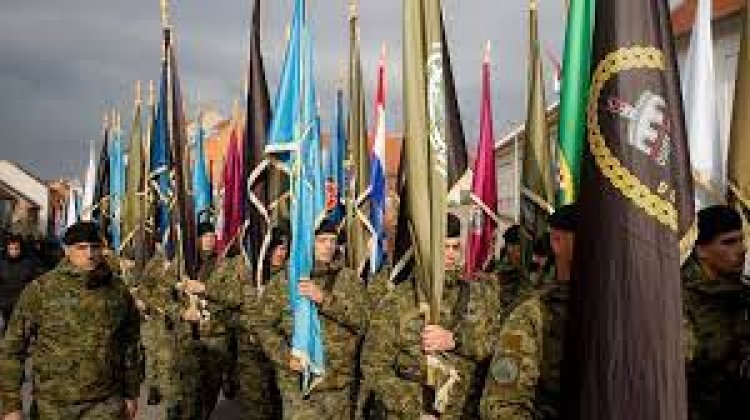Croatia marks 30th anniversary of fall of Vukovar during 1991-95 war

Vukovar: Tens of thousands of people on Thursday marked the 30th anniversary of the fall of the eastern Croatian town of Vukovar that was demolished by the Serb-led Yugoslav army during the 1991-95 war, becoming a symbol of resistance and national unity in the conflict.
Top officials headed a huge column of people during a traditional march through the town on the Danube, near the border with Serbia. The participants carried Croatian flags or were wrapped in them as they walked in silence.
Many people later also laid flowers and lit candles at a cemetery where the victims of the 87-day siege of Vukovar had been buried.
More than 10,000 people died in the Croatian war that erupted after the country declared independence from Serb-led Yugoslav federation, triggering a rebellion by the minority Serbs who took control of swaths of Croatian territory.
The Yugoslav army troops relentlessly shelled Vukovar, reducing it practically to rubble. Croatia views the town as a martyr of its resistance to what the Croats describe as Serb aggression against the nation.
Hundreds of people were also killed after the town's fall in November 1991 and their bodies were dumped in a mass grave at a nearby pig farm. The U.N. war crimes tribunal for the former Yugoslavia has sentenced to prison terms two former Yugoslav army officers and a former Croatian Serb official in connection with the killings.
Croatian Prime Minister Andrej Plenkovic said Thursday that Croatia is still looking for more than 1,800 people missing from the conflict and is seeking information from Serbia. Relations between the Balkan rivals remain tense, decades after the war.
The Council of Europe's Commissioner for Human Rights, Dunja Mijatovic, also said many of the victims of the Vukovar siege are still awaiting truth and justice.
I reiterate my call on political leaders in the region to open police and military archives which may hold information on missing persons and for improved cooperation in this field, said Mijatovic.
The war ended in 1995 after Croatia retook most of the territories that had been held by the Serb rebels. Tens of thousands of Serbs then fled the offensive.
Croatia organized Thursday's march despite soaring virus infections in the country. Plenkovic urged people to show responsibility and avoid putting each other at risk.















































